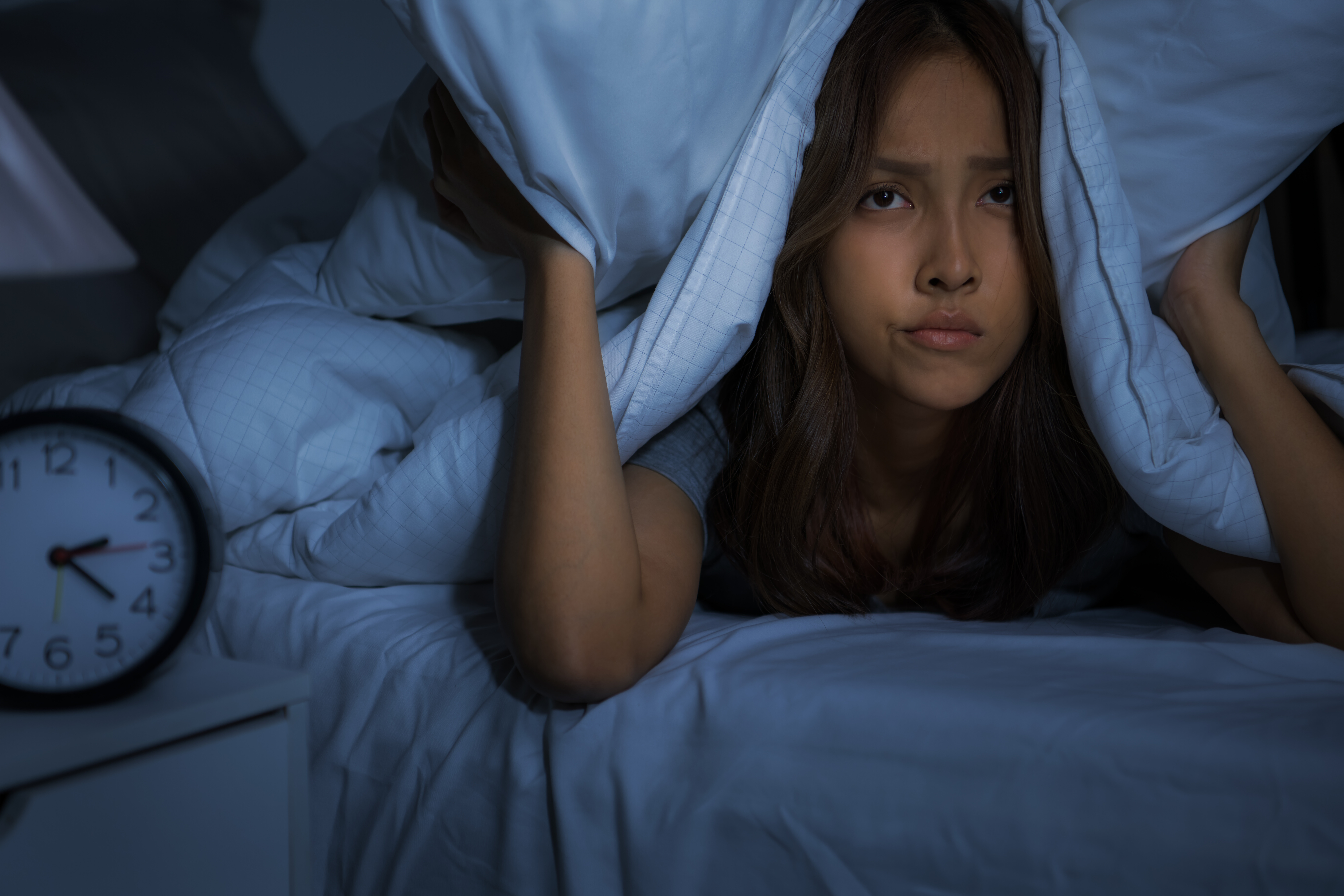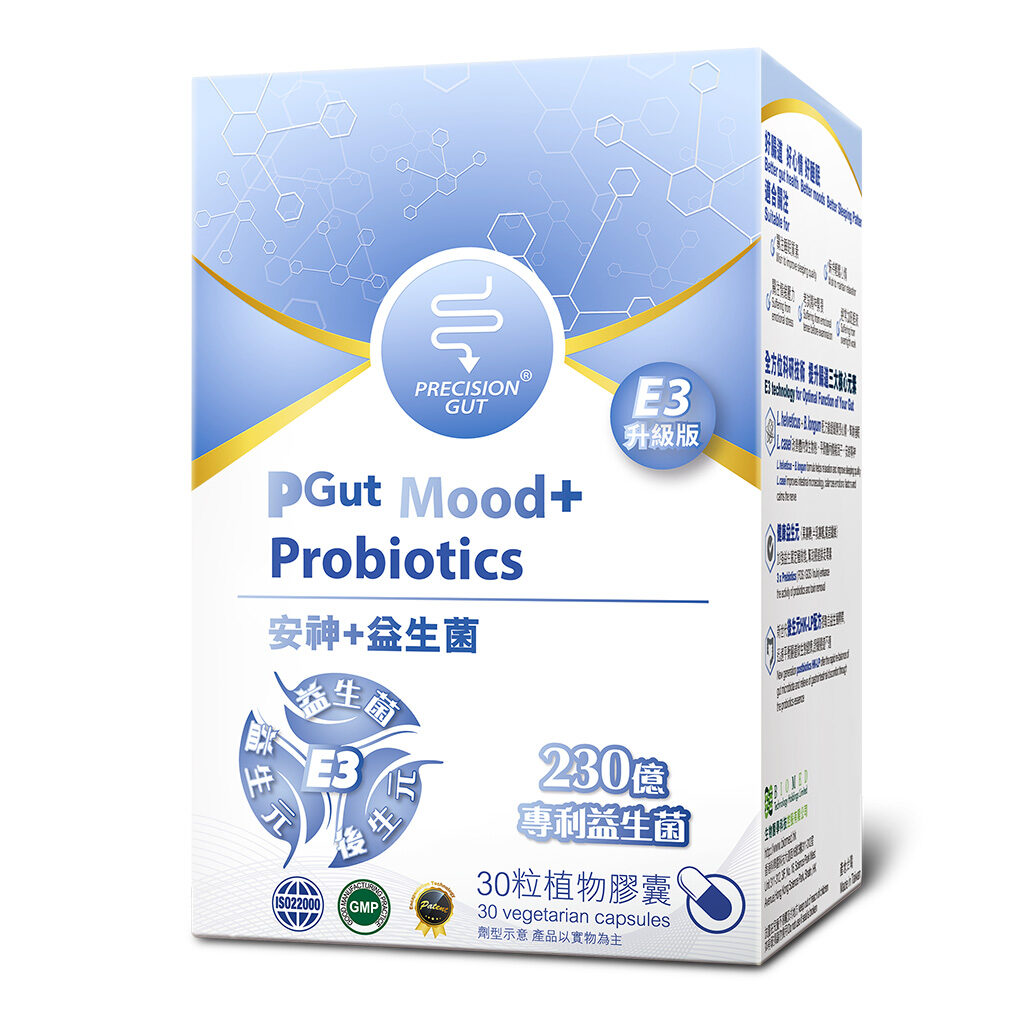Sleep disorders reduces the quality of life
Cannot sleep, counting sheep, This is probably the worst thing people don’t want to encounter when they sleep. Sometimes due to the depressions, and nervousness lead to sleep disorders. A lot of people said that it is not a major problem. However, a long-term sleep disorder will lead to mental exhaustion, which is harmful to your health. It affects your working and learning performance and reduces your quality of life. Moreover, sleeping disorder is not a disease, mostly are the manifestations of other mental illnesses, for example, anxiety and depression. Delayed treatment would lead to serious consequences.
To solve and prevent sleeping disorders, apart from adjusting sleep habits, and paying attention to diet and daily routines, the most effective and little-known way is to protect intestinal health. Recently, the Hong Kong Gut Microbiome Society published a report studying the effects of gut microbes on sleep and mood, in which participants submitted a stool sample to detect changes in their gut microbiome two months after taking a probiotic supplement, and evaluate three general assessments to evaluate their sleeping quality (PSQI), anxiety (GAD-7) and depression (PHQ-9) in the questionnaire to evaluate the effectiveness. The result was that all participants have improved on all three assessments. Before taking probiotics, 80% of the participants had poor sleep quality, of which 6 adults had different degrees of imbalance in the gut microbiome, the richness of microorganisms was relatively low, and it also showed that the number of individual bacteria varieties was different from that of people with good sleep quality effectiveness. Generally speaking, some participants lack some probiotics. The proportion of probiotics lacking individual varieties ranges from 40% to more than 90%. After using probiotics, participants’ intestinal probiotics were clearly replenished. Over 70 percent of participants who were sleeping unwell improved their sleeping quality by 20 percent, with remarkable results.
Probiotics can improve depression and anxiety effectively.
This research indicates that probiotics can improve depression and anxiety efficiently. Before taking probiotics, over 20 percent of the participants had medium-level symptoms of depression. Moreover, over 10 percent of the participants exhibited medium-level symptoms of anxiety. After taking probiotics, Over 80 percent of participants who were having medium-level of depression of symptoms, their depression index have reduced by nearly 30 percent. Around half of the participants who had medium-level of anxiety symptoms, their anxiety index has also reduced by 20 percent.
Our intestines store billions of microorganisms. These invisible residents always produce short-chain molecules such as (short-chain fatty acids, SCFAs), γ-aminobutyric acid, serotonin, and other metabolites. Then use the metabolites to communicate the information from the immune system of the intestines. The intestinal and immune cells will also use the nervous and endocrine systems to connect to the brain for the area dealing with stress and managing emotions. This trinity, two-way loop is called the microbiota-gut-brain axis. When we face stress, our body will respond through a systemic response from the nervous system, endocrine system, and immune system. If the intestinal microbiome ecology is out of balance and there are too many harmful microorganisms, harmful substances will pass through the intestinal wall, triggering an inflammatory response of the immune system. Long-term chronic inflammation can damage health and exacerbate symptoms of anxiety and depression. Probiotics can inhibit harmful germs, repair the balance of microorganisms, calms the overstimulated immune system, and relieves inflammation, thus effectively improving sleep, and reducing symptoms of anxiety and depression, without dependence and adverse side effects caused by taking sleeping pills.
To improve sleeping, and prevent anxiety and depression, no need to rely on elixirs or folk remedies, not to mention the use of sleeping pills. Probiotics are the simplest and the most effective prescription. If you still have sleeping disorders consistently, and also suffer from the symptoms of depression and anxiety, you must seek medical advice from a doctor immediately.



